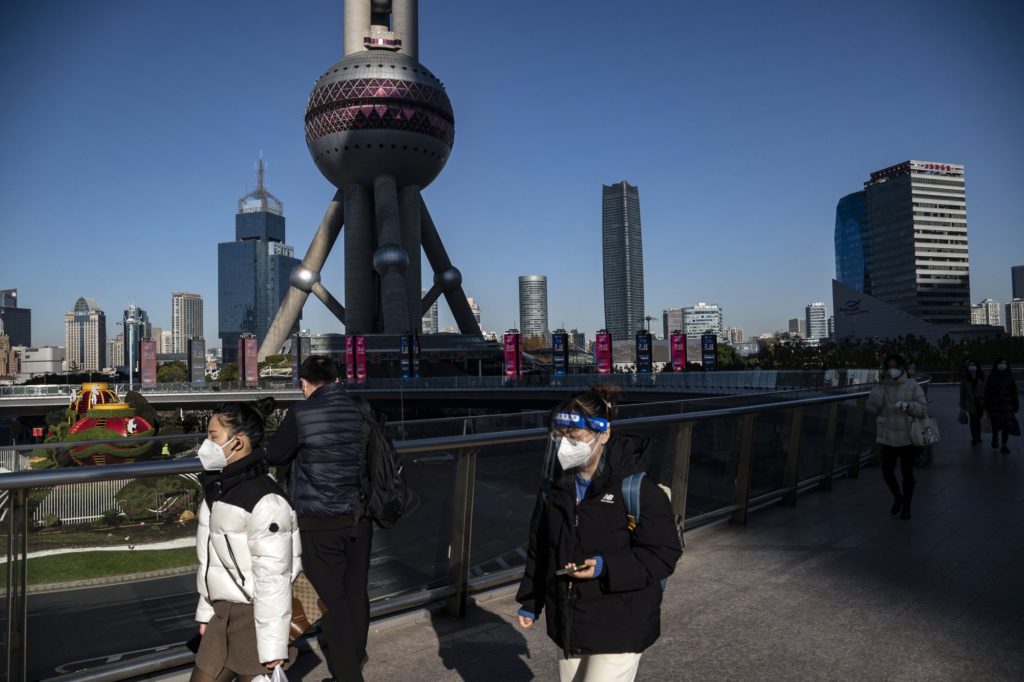The Chinese government’s plans to spin the fallout from President Xi Jinping’s U-turn on Covid Zero are starting to take shape: Claim victory and hope for a quick return to growth.
(Bloomberg) — The Chinese government’s plans to spin the fallout from President Xi Jinping’s U-turn on Covid Zero are starting to take shape: Claim victory and hope for a quick return to growth.
Xi is turning to economic growth to help the Communist Party through the Covid shock, a playbook that has worked for more than four decades.
The government is also deploying its vast state media apparatus and diplomatic corps to deliver the message that the shift away from Covid Zero started on Dec. 7 — which for almost three years meant lockdowns of large cities, mass testing and largely closed borders — was well timed.
They argue Xi’s approach saved lives, and the changes are actually improvements.
Little is said of the protests across dozens of Chinese cities late last month against Covid controls, the most widespread unrest the nation has seen in decades.
Meanwhile, top decision-makers in the world’s No.
2 economy have been mostly quiet about the pivot, apparently waiting until the dust settles to comment. Xi, who has run the nation of 1.4 billion people for more than a decade, has himself said nothing about what comes next, a silence all the more glaring given he repeatedly defended Covid Zero this year.
Here’s a look at how China under Xi is navigating the situation heading into 2023:
1.
Hope for a Rebound
Xi’s main bet is that economic growth unleashed by ending Covid Zero will make people forget the hardships of the past three years. Xi and other senior officials pledged at the two-day Central Economic Work Conference last week to revive consumption and support the private sector.
Officials said they would roll out policies to encourage private enterprise to expand and broaden market access for foreign firms.
They added that they’d support internet platform companies in playing a leading role in development, creating jobs and competing in the international market.
“Xi is both ideological and pragmatic,” said Steve Tsang, director of the China Institute at SOAS University in London.
“He is generally ideological and insists on his way being the only way. But when he sees problems that can potentially destabilize his leadership, he takes a pragmatic turn.”
Read: Economists Rush to Adjust China Forecasts as Covid Zero Ends
The problem with Xi pinning his hopes on the economy is that a surge in infections threatens to hamper business activity in the coming months.
Top officials were debating a growth target for 2023 of around 5%, Bloomberg News reported earlier this month, citing people familiar with the discussion. While economists are boosting their forecasts for next year, the consensus estimate in a Bloomberg survey predicts expansion of 4.85%, short of the figure officials were discussing.
2.
Ramp Up the Propaganda
The Chinese government has focused its propaganda efforts on convincing the public that ending Covid Zero was a calculated move. The People’s Daily, the ruling party’s flagship newspaper, said on Dec.
15 that the policy “won precious time” in controlling the outbreak.
The official Xinhua News Agency then ran a series of commentaries this week saying China’s approach all along has been scientific and arguing it “achieved maximum Covid control results with a minimum price.”
More: China Cranks Up Propaganda Defending Xi as Covid Surges
The increased propaganda could signal the government is committed to easing up on Covid Zero.
“It would be embarrassingly challenging to make another U-turn,” said Weifeng Zhong, who studies Chinese government propaganda at the Mercatus Center think tank at George Mason University.
China has also tweaked the way it counts Covid deaths, adopting a narrower definition for mortalities than it had in the past.
Lower death tolls would allow state media and Chinese diplomats to continue arguing the government has done a good job protecting public health.
That effort to play down deaths risks angering the public, however.
Some online voices have already criticized the official death toll because people have witnessed overwhelmed morgues and crematoriums.
3. Keep the Opposition Fragmented
The official silence on the major changes to Covid Zero is understandable given it was so closely associated with the nation’s paramount leader, and in the absence of any official statement on the status of Covid Zero, a blame game has erupted in China over the policy, which nationalists had defended as necessary.
Some internet users have criticized protesters and even Hu Xijin, the former editor of the nationalistic Global Times newspaper who urged the nation to reopen.
Such disputes have an upside, said Hanzhang Liu, assistant professor of political science at Pitzer College in Claremont, California, because at least people aren’t pointing their fingers at senior officials.
“It’s always a good thing that the public isn’t in unison against the government,” she said.
More: Xi Stays Silent as Covid Zero Strategy He Championed Crumbles
The propaganda push and fragmented views also give the authorities room to breathe until the economy rebounds.
The plans for growth could be complicated by a worsening of the Covid situation, something that’s very possible given China’s weak health-care system and undervaccinated elderly population.
“The choice would then be to reimpose restrictions, and risk further confusion, or to keep going despite the human costs,” said Duncan Wrigley, chief China economist at Pantheon Macroeconomics.
–With assistance from Jing Li and Jill Disis.
More stories like this are available on bloomberg.com
©2022 Bloomberg L.P.










